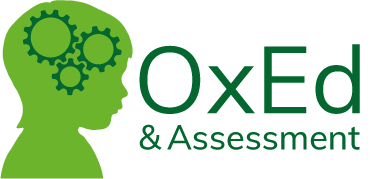Dr. Charles Hulme and Dr. Maggie Snowling, Professors Emeriti of the University of Oxford and Founders of OxEd & Assessment, have released research proposing a new model for learning to read, which champions oral language at the heart of the process.
Oral language is the system of spoken communication that develops in early childhood. It includes the ability to understand (receptive language) and use words and sentences in meaningful ways (expressive language). It is a child’s ability to listen, understand, and communicate using spoken words.
In a paper published in the Annual Review of Developmental Psychology, Drs. Hulme and Snowling highlight that while the Science of Reading is mature and has had a positive effect on reading instruction, the model that frames much of this research, the Simple View of Reading, creates a distinction between language and reading as if they were two separate developmental phases. They argue that it’s time to recognize that oral language is the heart of literacy and learning. Reading and language are deeply interconnected, and one cannot develop without the other. Without strong language skills, word reading, reading comprehension, and written expression will not develop effectively.
According to the ‘Reading is Language’ model, early language skills form the foundation for the later development of both decoding words and language comprehension. Language and decoding skills, in turn, make the development of reading comprehension possible.
In other words, we can think of reading development as involving a series of waves of development, with each wave dependent on all earlier waves. Language is the ocean from which every later wave of development originates.
These findings are aligned with the Department of Education’s Priority “Promoting Evidence-Based Literacy”, which recognizes that oral language is fundamental to literacy success and should be a core component of literacy instruction. This is a powerful step forward in recognizing that reading success begins well before phonics, with strong oral language skills, and that systematic, explicit and intentional instruction is needed to ensure students build the oral language foundations needed for reading comprehension.
This model also highlights the importance of language to writing, another element of literacy elevated in the DoE’s recent announcement, as without a secure foundation in language, written expression will not develop effectively.
“While phonics instruction is critical, it is only one part of the equation” says Dr Hulme, “as the research behind the Reading is Language Model shows; any child with language difficulties in preschool will be at risk of later reading problems. With more students than ever not meeting grade-level reading standards, what the ‘Reading is Language’ model highlights is that investing in assessments for language and providing children with high quality language instruction and intervention in preschool and early elementary will ensure students have the strong foundations they need for learning to read, resulting in fewer literacy challenges in later grades.”
To learn more about the Reading is Language Model: https://oxedandassessment.com/us/reading-is-language/
OxEd & Assessment (OxEd) is a University of Oxford spinout company launched to bring decades of research into children’s early language and reading development through to practical application in schools and districts. OxEd develops educational assessment apps, whole-class instructional solutions, and targeted interventions that help educators identify and address oral language delays, the critical foundation for reading, writing, and long-term learning success. Proven through large-scale trials and real-world implementation, OxEd’s solutions equip educators to meet evidence-based literacy priorities, close language gaps, and raise student achievement.
